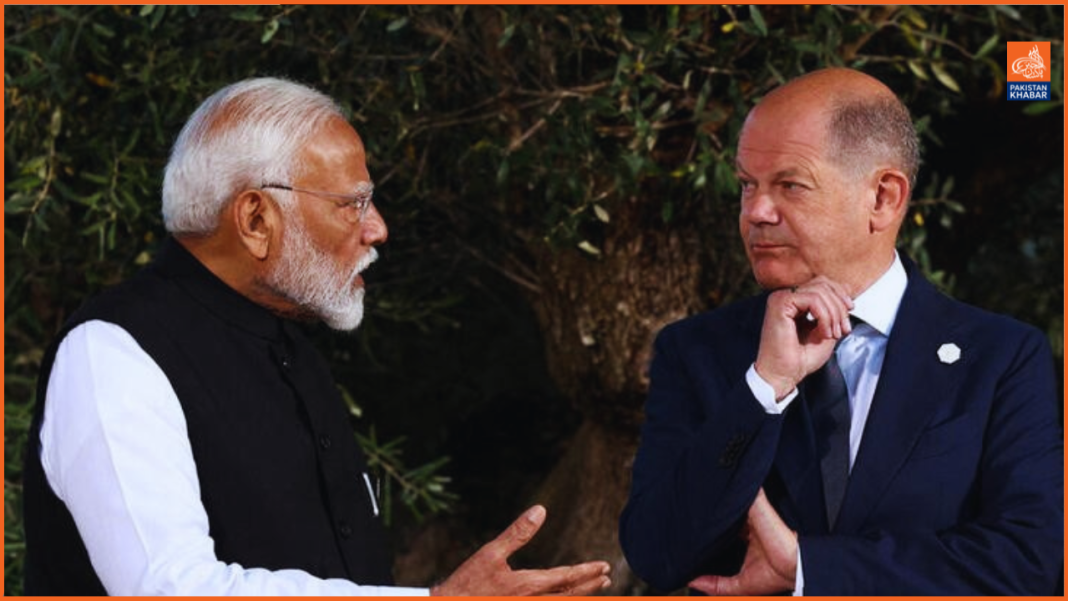Chancellor Olaf Scholz is heading a high-level delegation to New Delhi this week, aiming to tap into India’s vast market to reduce Germany’s dependence on Beijing, even if India doesn’t become the “new China.”
German companies are generally optimistic about India’s growth prospects, attracted by its young, skilled workforce, lower costs, and an economy expanding at around 7 percent. This visit comes at a crucial time for Germany, which is grappling with a second consecutive year of economic contraction and concerns over a trade dispute between the European Union and China that could impact German businesses.
After facing challenges from its heavy reliance on inexpensive Russian gas before the Ukraine war in 2022, Germany has been seeking to lessen its exposure to China. Economy Minister Robert Habeck emphasized that India, now the world’s most populous country, is a vital partner for Germany’s economy in the Indo-Pacific and plays a key role in diversifying its economic ties. “We should reduce crucial dependencies and bolster the resilience of German companies along with their supply chains linked to Asia,” he commented
However, China remains a significant player. In 2022, German direct investments in India were approximately 25 billion euros ($27 billion), which accounted for about 20% of the investments made in China. Volker Treier, head of foreign trade at the German Chamber of Commerce DIHK, believes this could increase to 40% by the end of the decade. “China will not disappear, but India will become more important for German companies,” he noted.
“India is the litmus test, so to speak. If de-risking China is to succeed, India is key due to its market size and economic dynamism.” Scholz will meet Indian Prime Minister Narendra Modi on Friday and will also oversee the seventh round of Indian-German government consultations, with Habeck arriving a day earlier for the Asia-Pacific Conference of German Business.
Despite acknowledging challenges such as bureaucracy, corruption, and India’s tax system as barriers to investment, German firms remain optimistic about the future. A recent study by consultancy KPMG and the German Chambers of Commerce Abroad (AHK) found that 82% of companies expect revenue growth over the next five years, and 59% plan to increase their investments, up from 36% in 2021.
For instance, German logistics giant DHL plans to invest half a billion euros in India by 2026, aiming to capitalize on the booming e-commerce sector. “We see enormous growth potential in the Asia-Pacific region, of which India is a significant part,” said Oscar de Bok, head of the division.
Volkswagen, facing declining sales in China and rising production costs at home, is exploring new partnerships in India, where it already has two factories and signed a supply agreement with local partner Mahindra in February. “We shouldn’t underestimate the potential in India, both as a market and given the regulatory uncertainties between the U.S. and China,” said the group’s finance chief, Arno Antlitz.
Similarly, engine manufacturer Deutz, based in Cologne, has reached an agreement with India’s TAFE, the world’s third-largest tractor maker, for TAFE Motors to produce 30,000 Deutz engines under license this year. Jonathan Brown, managing director at BCG, pointed out that the main advantages of investing in India are its political stability and low labor costs, suggesting a “China + 1” strategy where India plays a vital role.
Trade between Germany and India reached new heights in 2023, with India expected to surpass Germany and Japan to become the world’s third-largest economy by the end of the decade. However, negotiations for a long-awaited EU-India free trade deal remain ongoing, with no resolution in sight.
“The barriers to gaining a market presence are significant,” Brown observed, “but once established, the opportunities are vast. Merely selling German products domestically is not enough.”




